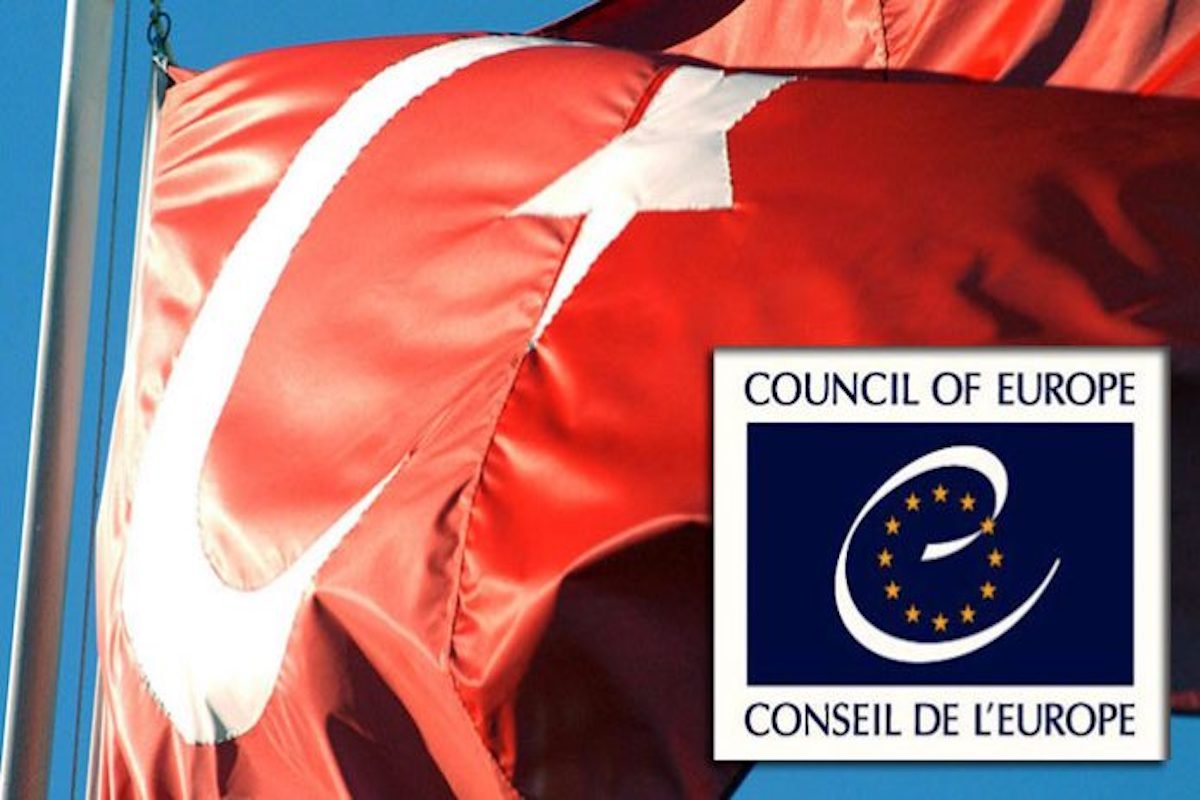The Council of Europe (CoE) has stated that it has taken the recent decrees issued by Turkish government under review. The decrees have stirred criticism since they have been prescribing “identical uniforms” for prisoners and an “exemption of civilians from legal proceedings” who take action in order to suppress alleged or perceived terrorist activities.
The CoE has made a statement regarding the recently issued government decrees in Turkey No 695 and 696, according to a report by Euronews. CoE Director of Communications Daniel Holtgen has stated that the CoE took the government decrees and the recent developments under review and he added that there are certain concerns on the issue, reported Euronews.
The body is monitoring whether the latest state of emergency decrees are compatible with the European Convention of Human Rights (ECHR), Holtgen said on Thursday. “At this stage, there’s only an assessment on the new decree laws, because there are some issues. Secondly, depending on the assessment, it’s likely that we will be in touch with the Turkish authorities to ask for further information and clarification. Depending on that, thirdly, we may see need for further dialogue and suggestions with the Turkish authorities,” said Holtgen.
All suspects and convicts under arrest for “crimes against the constitutional order” and for violating anti-terror laws in Turkey will have to wear single-type uniforms during court appearances, according to a government decree published in the Official Gazette on Dec. 24.
According to the decree, the defendants will either wear brown or gray uniforms during their court appearances.
The Article 121 of Decree Law No. 696, which has been interpreted as a “licence to kill” for radical Islamist and neo-nationalist pro-government circles, reads: “Regardless of their official duties, or appointments, any individuals who took part in suppressing the attempted coup d’état on July 15, 2016, terror acts, and other acts which are considered to be a continuation of these, will be subjected to the first clause [on immunity].”
The CoE has been monitoring the decree laws introduced since the state of emergency was declared in Turkey on July 20, 2016.
If Turkish nationals, who claim they suffered by the decree laws, want to bring their cases to the European Court of Human Rights (ECtHR), they will be rejected by the court if they have not exhausted all legal avenues in Turkey. But, because the applicants affected by the emergency decrees cannot bring their cases to the Constitutional Court of Turkey, which has said that it cannot make any rulings over the decrees, the CoE recommended Turkey last year to establish a commission to overlook emergency decrees to serve people complaining about the decrees, saying it is a national remedy necessary.
Stating that they had recommended Turkey to establish a Commission to review the discharges of ten thousands of people from public service, Holtgen said that they knew that there are also some objections against the way the commission operated.
Holtgen stated that “The CoE has taken these developments under review. You know that the Constitutional Court in Turkey does not accept such appeals. Therefore, we recommended that a commission be established for people, who were violated in their rights to apply to. That was a necessary step, since the domestic legal remedies should be exhausted before one can lodge an application to the ECtHR.”
Turkey survived a controversial military coup attempt on July 15, 2016 that killed 249 people. Immediately after the putsch, the Justice and Development Party (AKP) government along with President Erdoğan pinned the blame on the Gülen movement.
Gülen, who inspired the movement, strongly denied having any role in the failed coup and called for an international investigation into it, but President Erdoğan — calling the coup attempt “a gift from God” — and the government initiated a widespread purge aimed at cleansing sympathizers of the movement from within state institutions, dehumanizing its popular figures and putting them in custody.
Turkey has suspended or dismissed more than 150,000 judges, teachers, police and civil servants since July 15. Turkey’s Interior Minister announced on December 12, 2017 that 55,665 people have been arrested. Previously, on December 13, 2017, The Justice Ministry announced that 169,013 people have been the subject of legal proceedings on coup charges since the failed coup.

















[…] http://stockholmcf.org/coe-reviews-recent-controversial-decrees-issued-by-turkish-government/ […]